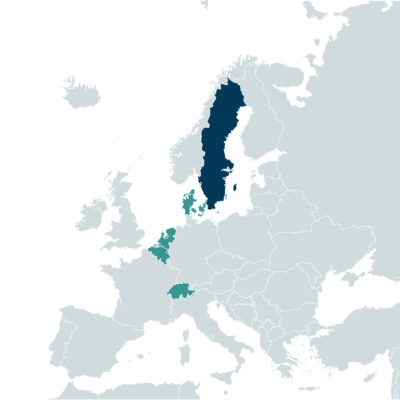DEFENDBIO – Biosphere Defenders Leveraging Legal and Governance Tools for Just Sustainability Transformations
Call
Duration
01/03/2025 – 29/02/2028
Total grant
Approx. 1.6 mil. €
More information
Dr. Claudia Ituarte-Lima
claudia.ituarte-lima@rwi.lu.se
Partners of the project
- Raoul Wallenberg Institute of Human Rights and Humanitarian Law, Lund, Sweden
- Lund University Centre for Sustainability Studies and Sociology of Law Department, Lund University, Lund, Sweden
- Brussels School of Governance (Vrije Universiteit Brussel), Institute for European Studies and Vesalius College, Brussels, Belgium
- Centre for Development and Environment CDE, University of Bern, Bern, Switzerland
- Copernicus Institute of Sustainable Development, Utrecht University, Utrecht, Netherlands
- Danish Institute for Human Rights, Copenhagen, Denmark

Context
Top-down approaches to conservation are often resisted by local communities, who better understand nature’s broader role in their lives. Such approaches frequently lack legitimacy, local knowledge, and do not tackle the political and economic root causes of nature destruction. DEFENDBIO shifts the focus to solutions prioritized by biosphere defenders—individuals and groups on the frontlines of ecosystem protection—who safeguard biodiversity and the benefits it provides to all life. By supporting the strategies of biosphere defenders and fostering an environment that empowers their work, DEFENDBIO aims to support sustainability transformations for present and future generations to thrive. Leveraging interdisciplinary expertise in law, politics, development, geography, and trade, the project uncovers opportunities and challenges within legislative and policy frameworks. Centered on Latin America and the Caribbean, and their interactions with Europe, DEFENDBIO contributes to the implementation of the Convention on Biological Diversity and international human rights treaties in an interconnected world.
Main objectives
- Investigating how biosphere defenders use legal and governance mechanisms for nature stewardship and climate adaptation;
- Empowering defenders with legal tools and strategies to advance environmental human rights, particularly in the context of the Escazú Agreement and the Kunming-Montreal Global Biodiversity Framework;
- Creating enabling environments for defenders to scale out locally-led NbS and scale-up impact at regional and global levels to support environmental democracy, human rights and sustainability transformations.
Main activities
- Investigating the mechanisms within international law that support the practical work of biosphere defenders, with a specific focus on the Escazú Agreement and the Inter-American Human Rights System;
- Examining the EU directives on value chains and finance that have a transboundary impact in Latin America and the Caribbean, analyzing how the implementation of EU legislation can support biosphere defenders and the practical effects of having additional legal empowerment tools;
- Studying the impacts of national-level litigation to protect nature in Latin American and Caribbean countries that host critical transboundary ecosystems, such as the Amazon and the Chocó rainforests. Special attention is given to litigation related to the regulation of global value chains (GVCs) to hold transnational corporations accountable;
- Using citizen science and monitoring at local and national levels serves to test the application of legal empowerment tools designed to support advocates and biosphere defenders across various jurisdictions in Latin America and Caribbean.
Through these activities, we seek ways to catalyse active engagement with nature stewardship and scale-up NbS and human rights mainstreaming at regional and global levels. We also analyze how biosphere defenders—those who fight to protect their land, water, and territories—not only transform our understanding of socio-ecological systems but also actively engage in legal and economic processes.

